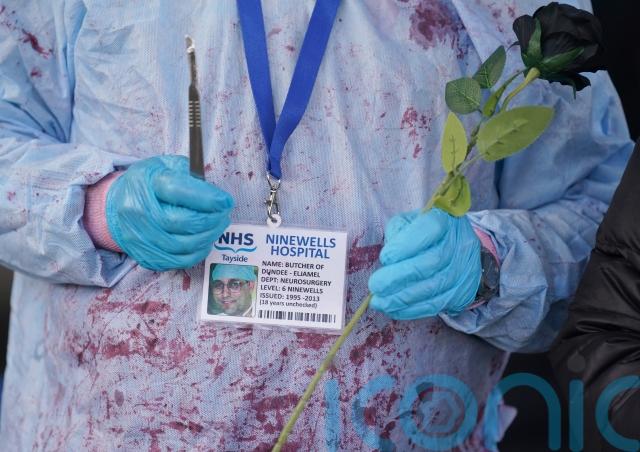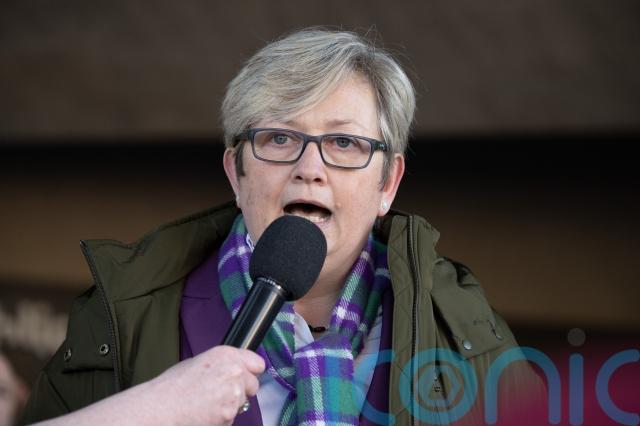
NHS Tayside destroyed about 40 logbooks for patients treated by shamed neurosurgeon Sam Eljamel this summer, despite a “do not destroy” order, an inquiry has heard.
The Eljamel Inquiry set up to investigate the disgraced surgeon’s professional practice was announced by the Scottish Government in September 2023 and its terms of reference were set out by Scottish Health Secretary Neil Gray earlier this year, with a police investigation running concurrently.
On Wednesday, a representative for patients and families, Joanna Cherry KC, said in an opening statement there was discontent the inquiry was not set up with the UK Government’s involvement, to examine the role of the General Medical Council (GMC) and the Health and Safety Executive (HSE).
Eljamel, originally from Libya, was head of neurosurgery at Dundee’s Ninewells Hospital from 1995 until his suspension in December 2013.
Following his suspension, the surgeon resigned from his post in May 2014 and removed himself from the General Medical Register in 2015.
To date, 138 former patients who were harmed by him are listed as core participants at the public inquiry, which is investigating his practice from 1995 until 2013.
Ms Cherry said that some patients felt they had been “blacklisted” and were described by NHS Tayside staff as “frequent flyers” or “season ticket holders” due to the extent of further treatment they needed, and many were living with devastating and permanent injuries.
She said that despite a “do not destroy” order issued by inquiry chair Lord Weir in October 2024, logbooks containing information about Eljamel’s patients between 1995 and 2013 were destroyed on July 24, describing it as either “gross negligence or possible malice”.

Ms Cherry said: “Members of the group and legal team were appalled to read in NHS Tayside’s statement that around 40 hard copy theatre log books between 1995 and 2013 were destroyed by NHS Tayside employees on July 24 2025.
“It beggars belief this has occurred. Patients have repeatedly raised concerns their medical records have been tampered with or incomplete. These log books might have provided vital evidence. You issued ‘do not destroy’ notices on October 11 2024.
“It seems to us the only explanation is gross negligence or possible malice. We would hope witnesses will be called upon to give evidence on oath, including the chief executive and chief operating officer including the chain of command of those who destroyed evidence.”
She said patients had described issues such as: “the absence of informed consent; warnings about underlying conditions which were ignored; the use of experimental medical techniques and devices which were new to the market; the lack of expertise to perform specific surgeries (and) ‘ghost surgeries’ where the surgery the patient consented to was not carried out”.

She said that many had suffered the loss of their jobs, marriages, and homes, because of failed medical treatment.
She said that NHS Tayside had appeared to act to “protect its image”.
Ms Cherry described the situation as “the patronising disposition of unaccountable power” – a term used in the Hillsborough Report – and said it was “apt to describe the experience of the group and their loved ones, not just at the hands of Mr Eljamel, but also at the hands of NHS Tayside, the Scottish Government and other authorities whose actions will be examined by this inquiry”.
She said that many patients believed NHS Tayside had “evaded both moral and legal accountability” and had experienced “poor communication, a lack of candour, evasiveness and at times, dishonesty”, and had lost faith in the NHS as a result.
She added: “Mr Eljamel was not simply a rogue surgeon acting without the knowledge of colleagues. Other healthcare workers were aware. Some appear to have challenged the conduct, but elected to take it no further. Others appear to have simply permitted the conduct to continue.”
Counsel for the inquiry, Jamie Dawson KC, said it could extend beyond Ninewells Hospital and NHS Tayside, and could examine “other parts of the NHS, for example, Dundee Royal Infirmary or NHS Fife”, the inquiry heard.
He said that hearings planned for February has been postponed, but that the inquiry would examine: “completeness and accuracy of medical records”; potential falsification; legibility and detail; as well as “use of products or items in surgery which were not licensed”; as well as the reporting of issues to HSE and the Scottish Government.
Mr Dawson pledged that the inquiry would be trauma-informed, and said other core participants included NHS Tayside; the Scottish ministers; the Royal College of Surgeons of Edinburgh; Healthcare Improvement Scotland; and NHS education for Scotland.
Una Doherty KC, representing NHS Tayside, told the inquiry a decision to destroy log books was “unfortunate” and that “the individuals involved were not aware of connection between log books and Mr Eljamel”.
She said some of the books destroyed in 2025 dated from the 1960s and that the information would most likely be replicated in patient records.
Ms Doherty said: “NHS Tayside has discovered that a number of hard copy theatre log books, some of which would have contained information relating to Mr Eljamel’s surgeries during the period 1995 to 2013 were unfortunately destroyed in 2025.
“It is estimated there were probably around 40 of these log books, which dated from the 1960s onwards. NHS Tayside understands that some log books may have contained information of potential assistance to the inquiry’s investigations.”
She added: “The individuals involved were not aware of the connection between the log books and Mr Eljamel. The destruction was carried out in accordance with the NHS and Scottish Government policies. The destroyed log books related to surgeries by Mr Eljamel and other members of staff.
“Given the importance of this matter, it has been raised at a senior level within NHS Tayside, renewed instructions have been communicated to staff in relation to logging and retention of documentation relevant to Mr Eljamel to try to ensure that there is no further destruction of documents.
“NHS Tayside has ascertained that much of the information normally contained within the destroyed log books should be contained in patient records, if those still exist, it is hoped that much of the information will still be available to the inquiry, albeit in a different format.”
The inquiry continues in front of Lord Weir in Edinburgh.
Subscribe or register today to discover more from DonegalLive.ie
Buy the e-paper of the Donegal Democrat, Donegal People's Press, Donegal Post and Inish Times here for instant access to Donegal's premier news titles.
Keep up with the latest news from Donegal with our daily newsletter featuring the most important stories of the day delivered to your inbox every evening at 5pm.